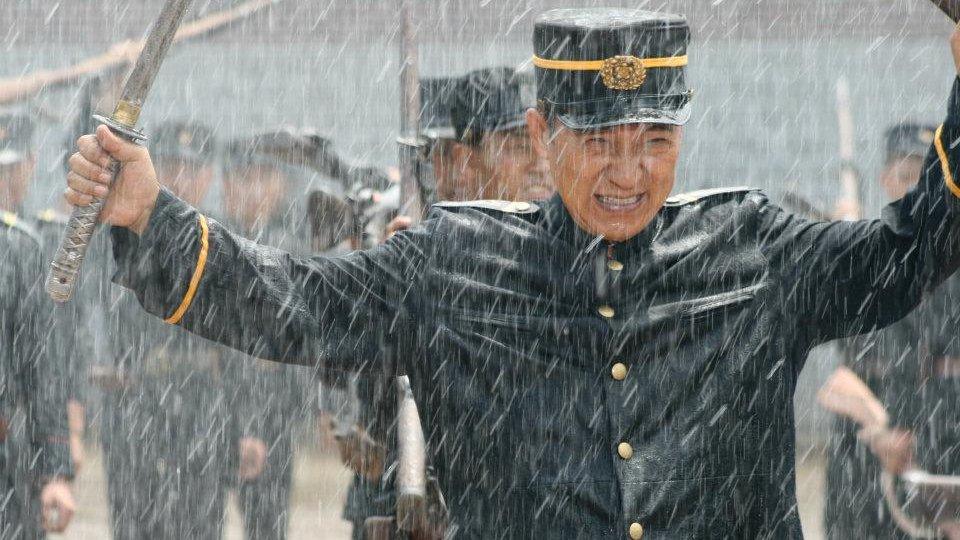North Korea's Joe Biden 'imbecile' insult and what it tells us
- Published
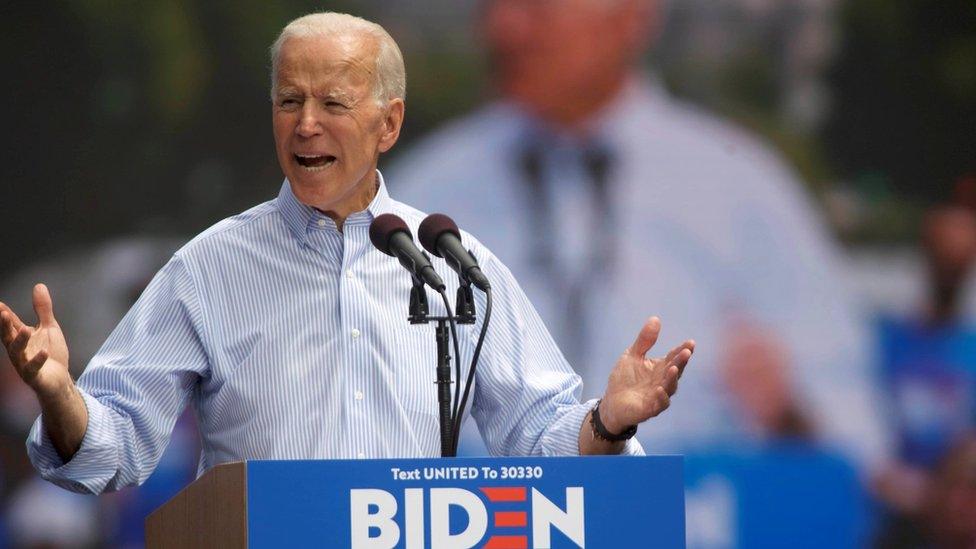
Joe Biden described Kim Jong-un as a "tyrant" on Saturday
North Korean state media had strong words for Joe Biden - the former US vice-president and current presidential candidate - on Wednesday.
Mr Biden had "gone reckless and senseless, seized by ambition for power", a commentary on the news website KCNA said.
He was "an imbecile bereft of elementary quality as a human being, let alone a politician", the commentary said, adding that he was "a fool of low IQ".
The piece also accused him of "vulgar acts and words about women" - a reference to earlier allegations of unwelcome touching from women - and said he became a "laughing-stock of the media" when he appeared to fall asleep during a speech by then-President Barack Obama in 2011.
It even went back to the 1960s, reminding readers of the fact that Mr Biden "received a grade of F" in a paper because he had plagiarised another article. Mr Biden has admitted to plagiarism, but said he misunderstood rules about citations.
Colourful insults in North Korean media are nothing new - KCNA recently quoted officials calling US national security adviser John Bolton "dim-sighted", and accusing Secretary of State Mike Pompeo of "fabricating stories like a fiction writer".
And, two years ago, North Korean leader Kim Jong-un famously called President Donald Trump a "dotard" - a 14th-Century term that means "an old person, especially one who has become weak or senile".
Yet - North Korea is one of the world's most secretive societies, and all of its media are under direct state control, which means its news reports, even when they mostly consist of insults, give us an interesting glimpse into what Pyongyang could be thinking.
Why is North Korea criticising Joe Biden?
Wednesday's KCNA report accused Mr Biden of "rhetoric slandering the supreme leadership of the DPRK" during a recent election campaign.
This appeared to refer to Mr Biden's rally in Philadelphia on Saturday, where he criticised Mr Trump for working with "tyrants like [Russian President Vladimir] Putin and Kim Jong-un".
"North Korean media tend to react sensitively to any comments made by foreign officials, especially US officials, about the North Korean leader," Rachel Lee, a senior analyst at NK News and a former North Korean media analyst for the US government, told the BBC.
However, it's important to note that KCNA is an external agency aimed at international audiences, and "North Korea's public don't have access to it", she added.
Often, domestic North Korean media avoid certain sensitive topics - or may avoid commenting on some issues, to ensure the government has more wriggle room later on, Ms Lee says.
Donald Trump and Kim Jong-un: From enemies to frenemies
Meanwhile, Prof Andrei Lankov, a North Korea expert at Kookmin University, says that such propaganda is part of Pyongyang's attempt to "drive a wedge" between Donald Trump and his political advisers.
State media criticism of Mr Biden, as well as Mr Pompeo and Mr Bolton, is an attempt to portray an image that "they would like to deal with Donald Trump, but he's prevented from doing anything meaningful by the hardline American establishment".
Whether this is true or not is another matter - the most recent direct talks between Mr Trump and Mr Kim ended in Hanoi in February without any progress towards an agreement.
"Given Joe Biden's record of standing up for American values and interests, it's no surprise that North Korea would prefer that Donald Trump remain in the White House," a spokesperson for his campaign, Andrew Bates, told the BBC.
What's with the colourful language?
North Korean state media are a lot blunter - and ruder - than you'd expect most official government outlets to be.
They have not been afraid to be sexist - previously carrying quotes describing former President Park Geun-hye as "an unseemly wench who has never had a chance to marry or bear a child", and criticising the "venomous swish of her skirt".
It has also called North Korean defectors, who have spoken about human rights abuses, as "human scum".
"Most North Korean propaganda is extremely - almost comically - aggressive," says Prof Lankov. "In North Korea, the harsher you sound, the better... this is how you're supposed to talk about political subjects."
Much of it is influenced by China's rhetoric from the late 1960s, he says, but Chinese propaganda has changed over the decades, with many in Chinese media educated in the West or influenced by Western styles.
North Korean rhetoric hasn't changed however, because "while society has changed a lot, their ideology has been frozen".
Prof Lankov adds that the North Koreans working in state media are likely to be from elite families, and graduates of prestigious local schools, who will be required to follow instructions from the Propaganda and Agitation Department.
"North Korea is one of the last countries where the government has full control over the media."
What do state media tell us about North Korea's politics?
Despite the insults, North Korea has actually toned down its anti-US rhetoric in last year and a half, Ms Lee says.
"Since the [first] Singapore Trump-Kim summit last June, North Korean domestic media have by and large refrained from carrying negative commentaries about the US."
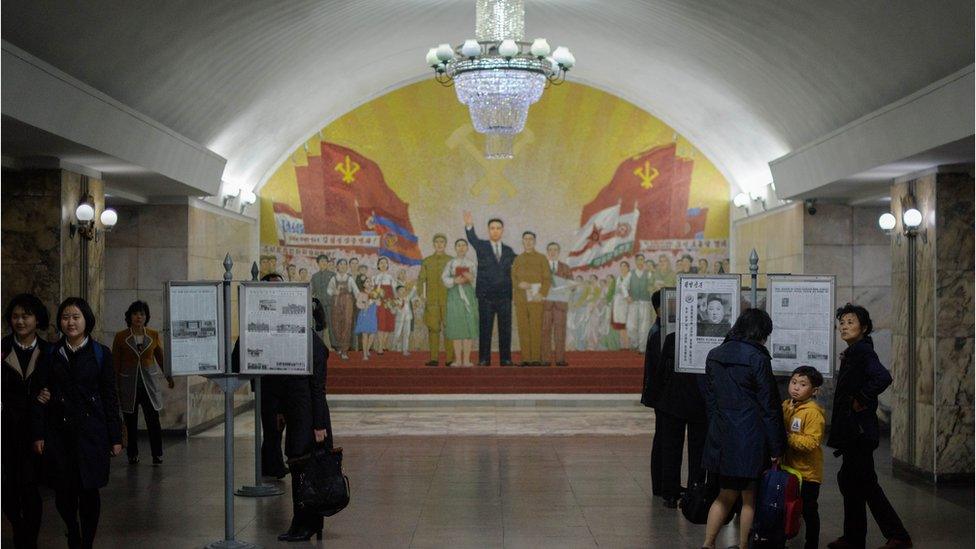
North Korean media are fully state controlled
In the past, "the last page of Party Daily newspaper [Rodong Sinmun], was almost always filled with commentaries criticising South Korea and the US - but since 2018 the page is now filled with more international news".
"I think the fact they are refraining from explicit criticism of the US using domestic outlets shows they're not closing the door on US-DPRK [North Korea] talks just yet."
- Published22 September 2017
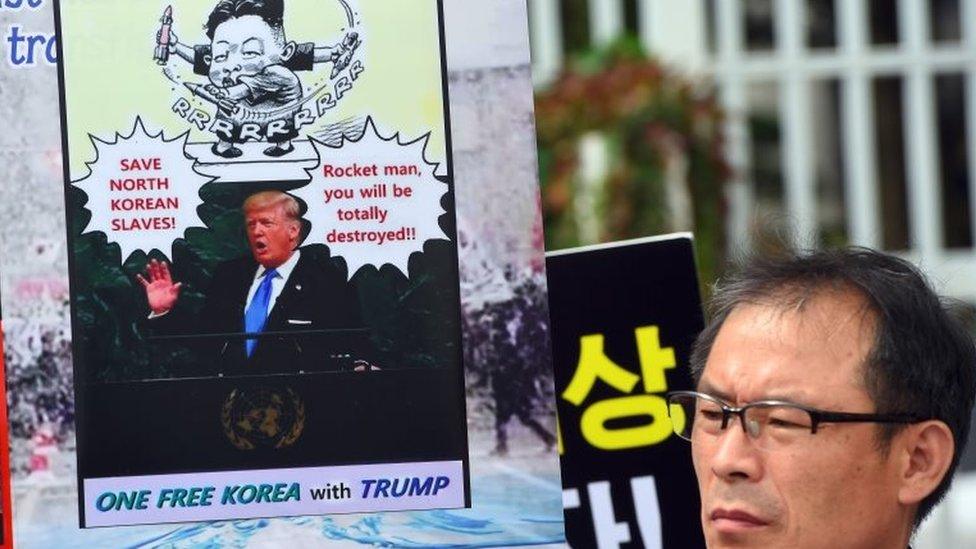
- Published23 June 2018
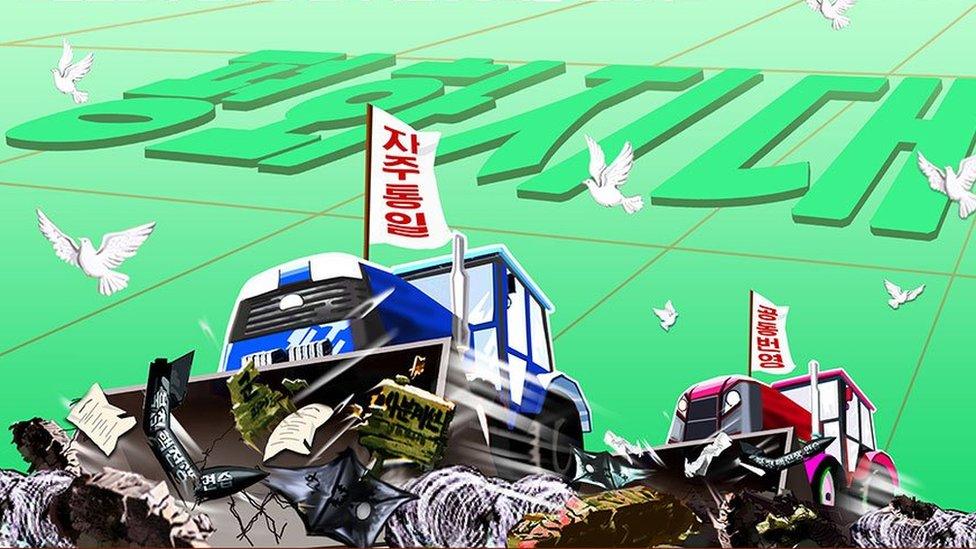
- Published2 January 2014
